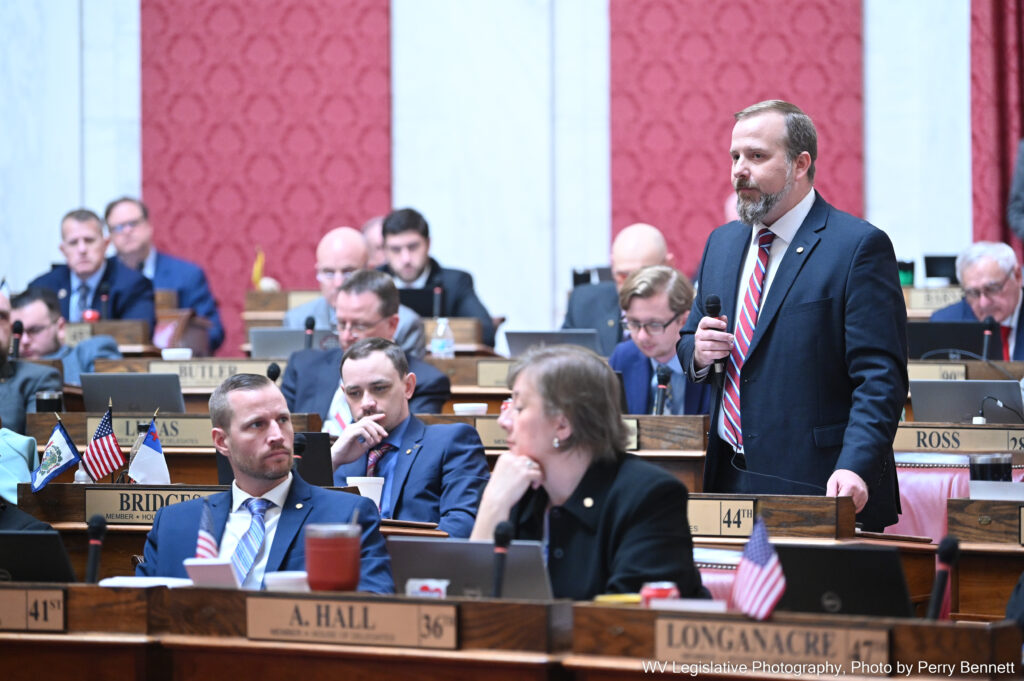The West Virginia House of Delegates passed a bill Friday that would remove a mandated year of incarceration for repeat shoplifting offenders.
Under current law, West Virginians convicted of shoplifting three or more times are required to spend one year in prison without the possibility of parole.
But House Bill 4998 removes the clause denying parole, granting more flexibility to the courts sentencing offenders.
Del. Todd Kirby, R-Raleigh, who sponsored the bill, said on the House floor Friday that such steep penalties for what can be a minor crime makes some prosecutors reluctant to pursue shoplifting charges.
“It seems harsh to send someone to the penitentiary for a minimum of one year if, in fact, they happen to steal a Snickers bar or a loaf of bread,” Kirby said.
“Judges under this bill will have the opportunity to impose sentences, if it is appropriate, from one to 10 years,” he added. “But they’re no longer bound to do so.”
The bill passed with an additional amendment that would require individuals convicted three times or more of shoplifting be tested for substance use disorders.
Individuals diagnosed with a disorder would then be required to receive treatment in addition to the penalties assigned by a court.
Under current state law, existing penalties include a fine between $500 and $5,000, as well as one to 10 years of imprisonment.
Kirby said that this amendment helps address an issue linked to many shoplifting convictions.
“Most shoplifting charges are related to substance or alcohol abuse,” Kirby said.
“This isn’t soft on crime, but it is realistic,” he added.
Now, the bill will go to the West Virginia Senate, where lawmakers will decide whether to advance the bill further.




















